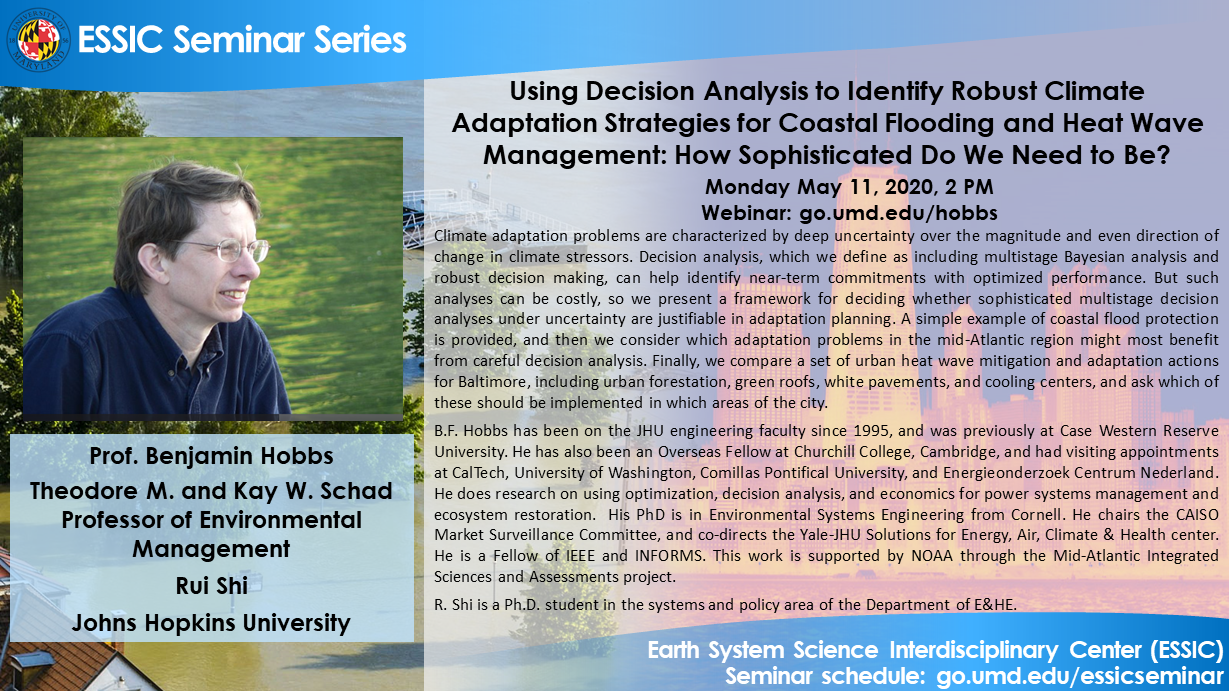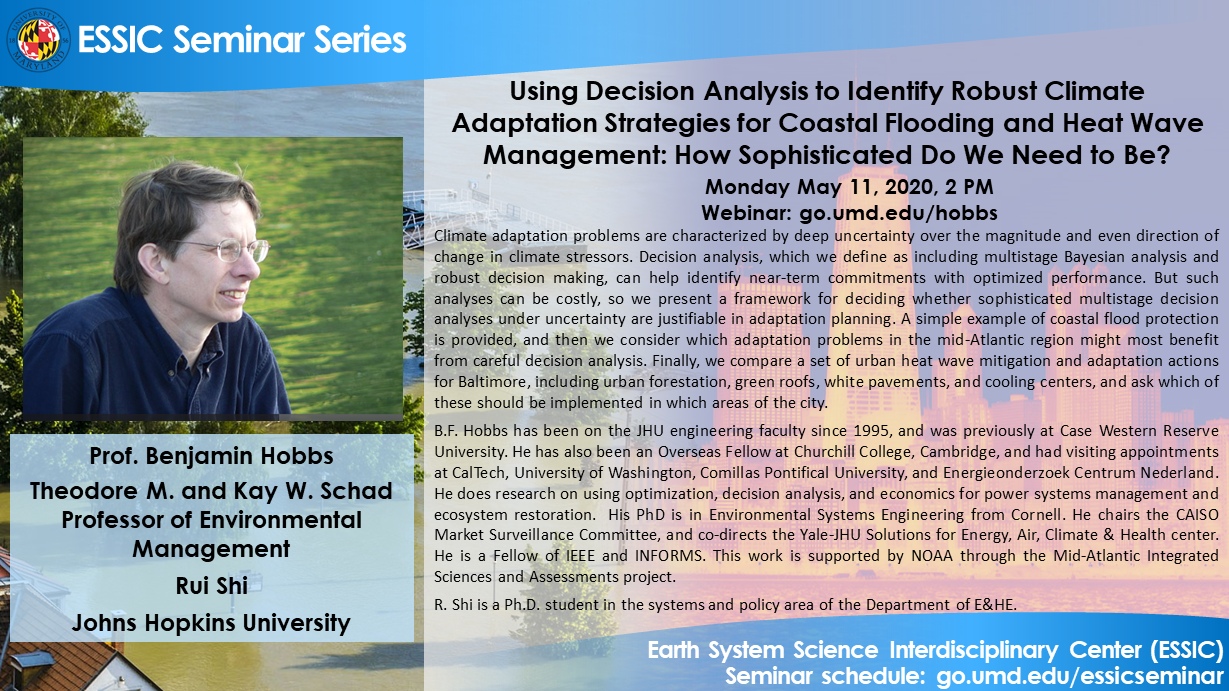
Using Decision Analysis to Identify Robust Climate Adaptation Strategies for Coastal Flooding and Heat Wave Management: How Sophisticated Do We Need to Be?
This event has passed. See the seminar recording here:
Prof. Benjamin Hobbs
Theodore M. and Kay W. Schad Professor of Environmental Management
Rui Shi
John Hopkins University
Monday May 11, 2020
ESSIC Conference Room 4102, 5825 University Research Court, College Park 20740
Abstract:
Climate adaptation problems are characterized by deep uncertainty over the magnitude and even direction of change in climate stressors; the cost and performance of adaptation actions; and future social conditions. This, together with the long lead times for some adaptation actions to be fully effective, means that near-term adaptation action may be necessary, but might be sub-optimal depending on how those uncertain variables evolve. Decision analysis, which we define as including multistage Bayesian analysis and robust decision making (RDM), can help identify near-term commitments that optimize expected performance and are robust with respect to deep uncertainty, while considering multiple objectives, learning, and option values.
But such analyses can be costly, so we present a framework for deciding whether sophisticated multistage decision analyses under uncertainty are justifiable in adaptation planning. A simple example in the context of coastal flood protection is provided to illustrate the use of the framework, and then we consider which adaptation problems in the mid-Atlantic region might most benefit from careful decision analysis. Finally, we compare a set of urban heat wave mitigation and adaptation actions for the City of Baltimore, including urban forestation, green roofs, white pavements, and cooling centers, and ask which of these should be implemented in the near term in which areas of the city, considering possible later adaptations as learning takes place over the next decades. RDM is used to identify the robust adaptive strategies.
Bio-sketch:
B.F. Hobbs has been on the JHU engineering faculty since 1995, and was previously with the Department of Systems Engineering, Case Western Reserve University, and at Oak Ridge and Brookhaven National Laboratories. He has also been an Overseas Fellow at Churchill College, Cambridge University, and had visiting appointments at CalTech, University of Washington, Comillas Pontifical University, and ECN (the Netherlands). His PhD is in Environmental Systems Engineering from Cornell University. He chairs the Market Surveillance Committee of the California ISO, and was previously consultant to the FERC Office of the Economic Advisor. He is a Fellow of IEEE and INFORMS.
Dr. Hobbs teaches and does research on the use of optimization, decision analysis, and economics for power systems management and ecosystem restoration. He codirects the Yale-JHU Solutions for Energy Air Climate & Health Center, funded by USEPA. This seminar is a report of work conducted as part of the Mid-Atlantic Regional Integrated Sciences and Assessments project https://www.midatlanticrisa.org/ led by the RAND Corporation and funded by the NOAA RISA program.
R. Shi is a Ph.D. student in the systems and policy area of the Department of E&HE. He has a masters’ degree from the School of Natural Resources and Environment, University of Michigan in Sustainable Systems. His B.S. is in Environmental Science from the School of the Environment, Nanjing University. He has been a summer researcher at the RAND Institute in Santa Monica, CA.
Webinar info:
Event site: http://go.umd.edu/hobbs
Event number: 474 333 427
Event password: essic
——————————————————-
To join the online event
——————————————————-
1. Click here to join the online event.
2. Click “Join Now”.
——————————————————-
To join the audio conference only
——————————————————-
US Toll: +1-415-655-0002
Global call-in numbers
Access code: 735 730 422
——————————————————-
For IT assistance
——————————————————-
Cazzy Medley: cazzy@umd.edu
Travis Swaim: tswaim1@umd.edu

